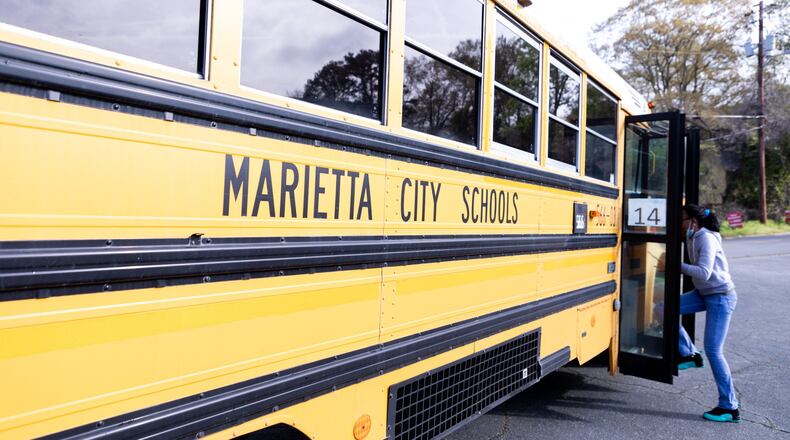Georgia will spend up to $1.2 million to hire online teachers for an expected swell in enrollment in the state’s virtual school offerings this fall, while adding several million for temporary expansions of internet access.
With COVID-19 affecting schools across the state, enrollment in the Georgia Virtual School has already risen 30% and officials think it could go much higher, overwhelming the 250 teachers. The state-run school provides supplemental courses for middle school and high school students, whether they are enrolled in a public school, a private one or are schooling at home.
The expenditure approved by the state Board of Education Tuesday will be used to hire up to 100 teachers to augment the program. An official said during the telephone conference meeting that the state Department of Education is “exploring” courses for younger students, but it will take time to develop those.
Board members also authorized $7.5 million for testing company Data Recognition Corp. to prepare for administering the state Milestones tests. Gov. Brian Kemp and state school Superintendent Richard Woods have initiated the formal process for securing a federal waiver from those tests, but until a waiver is secured, the state must continue preparing. The tests are federally mandated.
“Right now, we do have to go with the assumption that we are testing,” Woods said.
The school board also adopted the $11.8 billion state budget for education that the General Assembly approved last week. It contains $950 million in cuts due to the economic hardship caused by the coronavirus health emergency.
The board also approved using $4 million in Georgia's allotment of federal CARES Act COVID-19 relief funding to pay for internet connectivity devices. Most of it, $3 million, will be added to what the state has dubbed its "Wi-Fi Ranger" program, which outfits school buses with internet hotspots. The buses park in neighborhoods, giving students nearby a way to get online. The remaining $1 million will go to libraries to acquire and distribute personal internet hotspots to students.
About the Author
Keep Reading
The Latest
Featured

